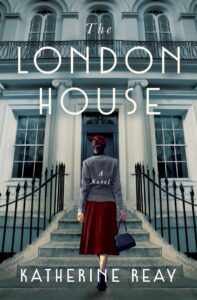by Katherine Reay, @Katherine_Reay

Image by Anastasia Gepp from Pixabay
The other day a young woman who went to high school with my daughters reached out to me. During the past year, she has written the first 60K words of her first novel and wanted to know about best next steps. After listening to what she’d done, here were a few of my suggestions…
- Read what you’ve written as a reader and not as a writer. Do not edit, simply read. How does it make you feel? Are you racing along? Are you bored? Are you lost? Sometimes we need to put on that different hat to understand our own stories and find the places we need to deconstruct or augment.
- Remember your protagonist is not you. I think with a first novel, it’s easy to give our protagonist a personality we understand — our own. But he or she must have an individual story, back story, needs, wounds, mistakes and dreams. And they need to be big. I’ll take it a step further and say fictional characters need to be conceived as larger-than-life just so they appear moderately life-like on the page.
- Decide your POV and outline your story’s major plot points. This writer was writing in first-person and in third-person POVs for her first draft, unsure where to land. I suggested she compare two scenes, pick the stronger voice and commit. Oftentimes characters have a POV that reveals a character best, and once you find that POV and dive deep, the character gets revealed to an even greater degree. Voices become louder and more clear. The same is true with major plot points. By anchoring them in your story, you have the framework on which to hang all the details.

- Change your metrics. When writing that first word dump, it’s rewarding to plan and execute 3,000 to 5,000 words in a day. But if you keep to those expectations, you’ll grow frustrated. Second drafts yield fewer words, but better ones. I advised her to change her metrics (she liked metrics) to time worked or to number of chapters or scenes revised within a day.
- Don’t let the next draft consume you. Most often with a first novel, there is no deadline. Yes, you want to keep at it and push yourself and the story. But don’t let your drive to finish the novel steal the joy you feel with work, school, family and friends.
- Last but never least — read some craft books and/or listen to some podcasts. It’s important to understand the terminology of the writing world and the basics of story construction. And, if you’re beyond that, it’s important to keep learning new things. I am a big believer in continuing to learn about the craft… But I needn’t tell you that. You’re here. 🙂
All the best to you and your writing. I hope some of my advice to her will help you as well.
Katherine
An uncovered family secret sets one woman on the journey of a lifetime through the history of Britain’s WWII spy network and glamorous 1930s Paris in an effort to understand her past, save her family, and claim her future.
One call could bring ruin to her family name.
The letters tell a different story.
But history won’t let its secrets go so easily.
Katherine Reay is a national bestselling and award-winning author of several novels, including Dear Mr. Knightley, The Printed Letter Bookshop and the upcoming The London House. She has enjoyed a lifelong affair with books and brings that love to her stories. Katherine has also written one full-length nonfiction work, Awful Beautiful Life. She holds a BA and MS from Northwestern University and currently lives outside Chicago, IL. Publishing credits also include Redbook, USAToday, Christianity Today and FamilyFiction. You can meet Katherine at www.katherinereay.com or on Facebook: KatherineReayBooks, Twitter: @katherine_reay and Instagram: @katherinereay.


